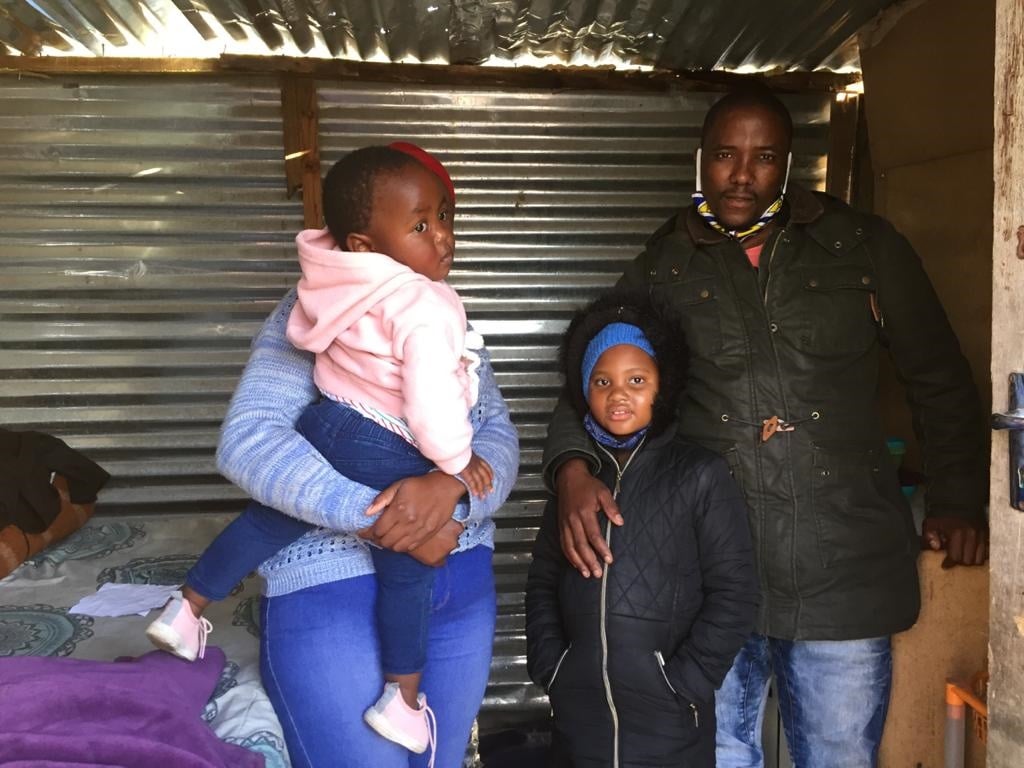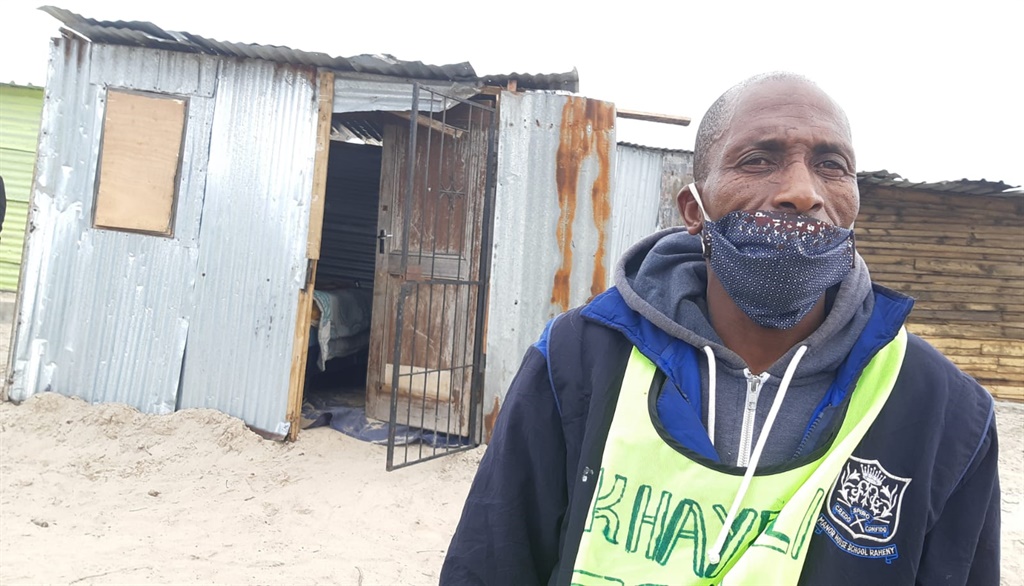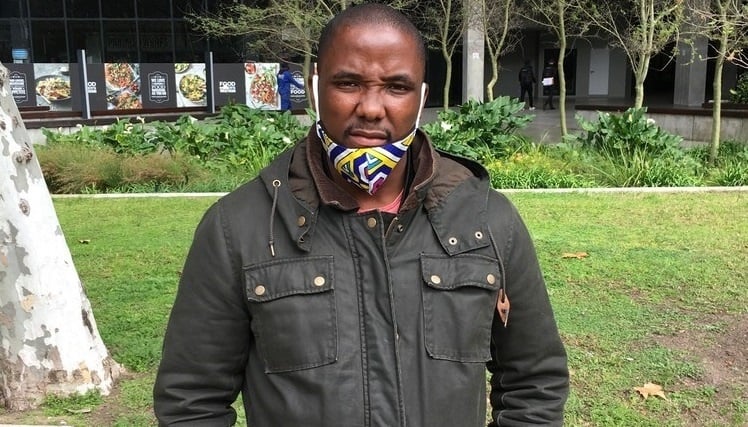- Bulelani Qolani’s neighbours rebuilt his home for him so that he had somewhere to sleep on Thursday.
- They did it “because they are a community”.
- But they do not know how long they can go on with being evicted.
Neighbours of Khayelitsha’s Bulelani Qolani rebuilt his shack for him so that he would not have to sleep in the wet veld, after City of Cape Town Law Enforcement officers demolished it after removing him, naked.
The Law Enforcement officers tore down his home while he was in it – after a protracted struggle between himself and the officers, who kept tackling him as he ran from them with no clothes on.
He had been taking a bath when the removal started, and a video of the incident was shared widely. The city says the land is earmarked for infrastructure and is allegedly occupied illegally.
MUST READ | Man who was dragged naked from his shack speaks out
“We did build it for him,” said Alex Madikane, a neighbour of Qolani’s.
“So that he can have somewhere to come to tonight [Thursday].”
While he was speaking, one of Madikane’s children pounded at nails, adding the finishing touches to the rebuilding of his own shack next door on the levelled out patch of sand.
He said his house was also torn down by authorities.
A few tents with holes in them fluttered in a cold wind, and the smell of outside toilets permeated the air as a group of women sat on chairs with thick blankets wrapped around them.
In April, a court ruled that 49 people whose homes had been demolished on nearby land – named eMpolweni – could rebuild their homes until the Covid-19 lockdown ends.
Land
The City of Cape Town said the people living on eThembeni, near eMpolweni, had allegedly occupied land meant for infrastructure in the area.
Wednesday’s events led to the City of Cape Town suspending four Law Enforcement Officers involved in the Qolani incident, and statements of condemnation were issued by mayor Dan Plato and Community Safety MEC Albert Fritz.
“This conduct has no place in the Western Cape and South Africa,” said Fritz.
Plato apologised for the incident, and said it was not the way the city operates, which is why the officials were suspended swiftly.
READ | SAHRC to go to court on ‘naked’ man eviction
In an opinion piece written for News24 on Thursday, he also stated that while evictions were not permitted during lockdown, nor were land occupations.
The City’s executive director for safety and security, Richard Bosman said they did not condone any “forceful or dehumanising conduct” by staff members.
Two marches were held to highlight Qolani’s plight – one at the Civic Centre, the City of Cape Town’s nerve centre, and another from Makhaza to the Harare police station.
Criminal complaint laid
The EFF, ANC, SA National Civic Organisation and Young Communist League were included in the lengthy procession to the police station.
The leader of the ANC in the council Xolani Sotashe and EFF provincial chairperson Melikhaya Xega were among those who went to lay complaints against the City and officials.



Bulelani Qolani and his family.



Alex Madikane, stands in front of Bulelani Qolani’s rebuilt shack.



Bulelani Qolani, who was dragged from his shack on Wednesday, naked, by City of Cape Town law enforcement officers. The officers have been suspended.
They wanted the police to investigate the City for, among others, the alleged violation of the Disaster Management Act regarding evictions during the Covid-19 pandemic.
After a visit to the site where Qolani was evicted from, the entourage returned to the police station where he was expected to lay a complaint of his own. It is understood that he was consulting lawyers regarding the incident.
His neighbours, some slightly miffed by the political turn of events, waited in steady winter rain for him to emerge, huddling under the awning of the Harare police station’s entrance, with their masks on.
In the meantime, SA Human Rights Commission commissioner Chris Nissen said it would take the City of Cape Town to court over its evictions policy.
Nissen said the commission would also institute an investigation into the Law Enforcement officers’ actions, in line with the Optional Protocol to the Convention against Torture and Other Cruel, Inhuman or Degrading Treatment or Punishment.

